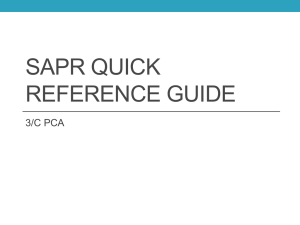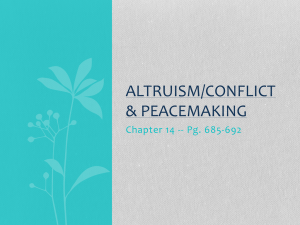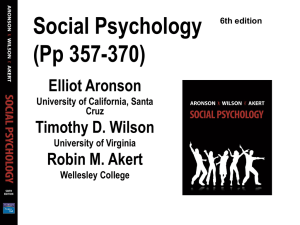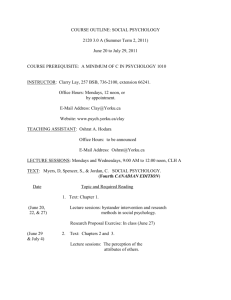The Internet Keep Safe Coalition (iKeepSafe) Submission to the ITU... Working Group on Child Online Protection
advertisement
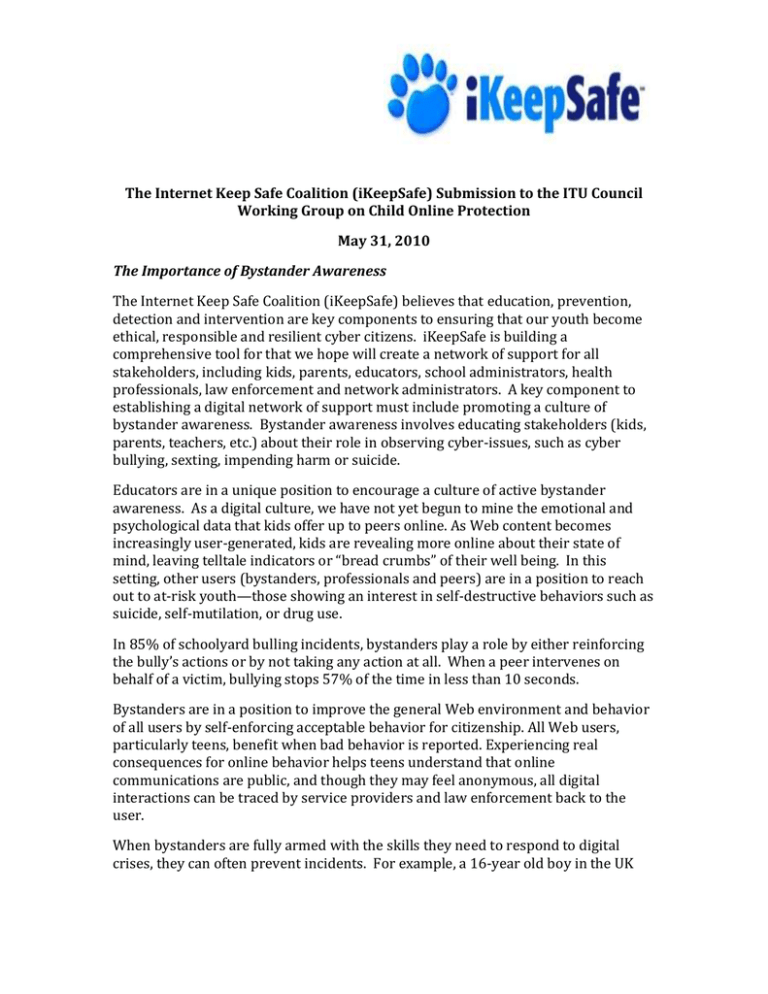
The Internet Keep Safe Coalition (iKeepSafe) Submission to the ITU Council Working Group on Child Online Protection May 31, 2010 The Importance of Bystander Awareness The Internet Keep Safe Coalition (iKeepSafe) believes that education, prevention, detection and intervention are key components to ensuring that our youth become ethical, responsible and resilient cyber citizens. iKeepSafe is building a comprehensive tool for that we hope will create a network of support for all stakeholders, including kids, parents, educators, school administrators, health professionals, law enforcement and network administrators. A key component to establishing a digital network of support must include promoting a culture of bystander awareness. Bystander awareness involves educating stakeholders (kids, parents, teachers, etc.) about their role in observing cyber-issues, such as cyber bullying, sexting, impending harm or suicide. Educators are in a unique position to encourage a culture of active bystander awareness. As a digital culture, we have not yet begun to mine the emotional and psychological data that kids offer up to peers online. As Web content becomes increasingly user-generated, kids are revealing more online about their state of mind, leaving telltale indicators or “bread crumbs” of their well being. In this setting, other users (bystanders, professionals and peers) are in a position to reach out to at-risk youth—those showing an interest in self-destructive behaviors such as suicide, self-mutilation, or drug use. In 85% of schoolyard bulling incidents, bystanders play a role by either reinforcing the bully’s actions or by not taking any action at all. When a peer intervenes on behalf of a victim, bullying stops 57% of the time in less than 10 seconds. Bystanders are in a position to improve the general Web environment and behavior of all users by self-enforcing acceptable behavior for citizenship. All Web users, particularly teens, benefit when bad behavior is reported. Experiencing real consequences for online behavior helps teens understand that online communications are public, and though they may feel anonymous, all digital interactions can be traced by service providers and law enforcement back to the user. When bystanders are fully armed with the skills they need to respond to digital crises, they can often prevent incidents. For example, a 16-year old boy in the UK was chatting online with a girl in the United States about killing himself. The girl alerted authorities and the boy was ultimately saved.1 The Internet Keep Safe Coalition is working on a project designed to educate all stakeholders about digital risks. There is a real need to include stakeholders in creating and implementing strategies, both off- and on-line, to better respond to youths’ online experiences. These strategies should include not just those that address illegal activity but those that respond to youths’ online experiences that affect how they feel about themselves and impact their relationships around them. The Internet Keep Safe Coalition welcomes discussion on this topic and is interested in working with international organizations to achieve this goal of educating bystanders. Contact Information: Marsali S. Hancock President Internet Keep Safe Coalition 1401 K Street N.W., Suite 600 Washington, D.C. 20005 Phone: 202-587-5583 Mobile: 703 536-1637 mhancock@ikeepsafe.org Blog: http://www.ikeepsafe.blogspot.com/ http://www.telegraph.co.uk/technology/facebook/5104882/Suicidal-teenagersaved-by-Facebook-friend.html 1
